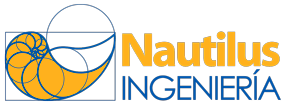Мелбет фрибет скидка, а как использовать фрибет во Melbet
5 de marzo de 2025Arrange E-mail Services And Protection From Spam And Viruses
5 de marzo de 2025A essential component of this safety is the SSL (Secure Socket Layer) certificate, acting as a protecting shield for user information during transmission. Nonetheless, SSL certificates come with an expiry date, making their renewal a vital task. Missed renewals can result in website downtimes, compromised user trust, and potential search engine optimization penalties. This article explores the instruments and best practices surrounding this crucial task. A Multi-Domain SSL certificates is sure to guard up to 100 different domains and subdomains (depending on the provider). It is, subsequently, the appropriate type of SSL for companies that have a quantity of websites or run totally different versions of net sites in numerous geographic places.
Forms Of Multi Area Ssl Certificates
They additionally help shield advert income by preventing ISPs from injecting ads onto an web site. As well because the certificates themselves, Comodo also offers a range of helpful tools and options for certificates administration, including the “Why No Padlock? Finally, each Comodo SSL Certificate comes with a substantial guarantee to help businesses in case of any points on Comodo’s end Servers Expert that result in monetary loss.
Standard Multi Domain Ssl
It is required by the Certificates Authority (CA) to confirm your id and validate the ownership of the domains. It is possible to centrally handle 3rd get together SSL certificates like GoDaddy certificates on your public going through and inside web sites. This could be accomplished by utilizing a certificates administration software that automates the method of certificate deployment, renewal, and revocation across a number of servers. One such tool is a certificates administration platform like CertCentral from DigiCert or SSL/TLS Manager from Comodo. These platforms let you handle your SSL certificates from a single, centralized location, and might automate the method of deploying up to date certificates to your internet servers. Sure, it’s attainable to centrally manage third party SSL certificates in your public going through and internal websites.
If you only have a single area and plan on including more subdomainsin the longer term, you should choose a Wildcard SSL certificate. The variations between Multi-domain/SAN certificates and Wildcard certificates are quite just like whatdifferentiates UCC certificates from Wildcard certificates. Multi-domain/SAN can protect multiple domainsand subdomains, whereas Wildcard secures one domain and limitless subdomains. Nevertheless, neithermulti-domain/SAN certificates or Wildcard certificates need particular infrastructure to work in. When a person tries to entry a web site protected by a multi-domain/SAN certificates, the browser will verify thecertificate to see if the URL matches one of many SAN names contained within.
